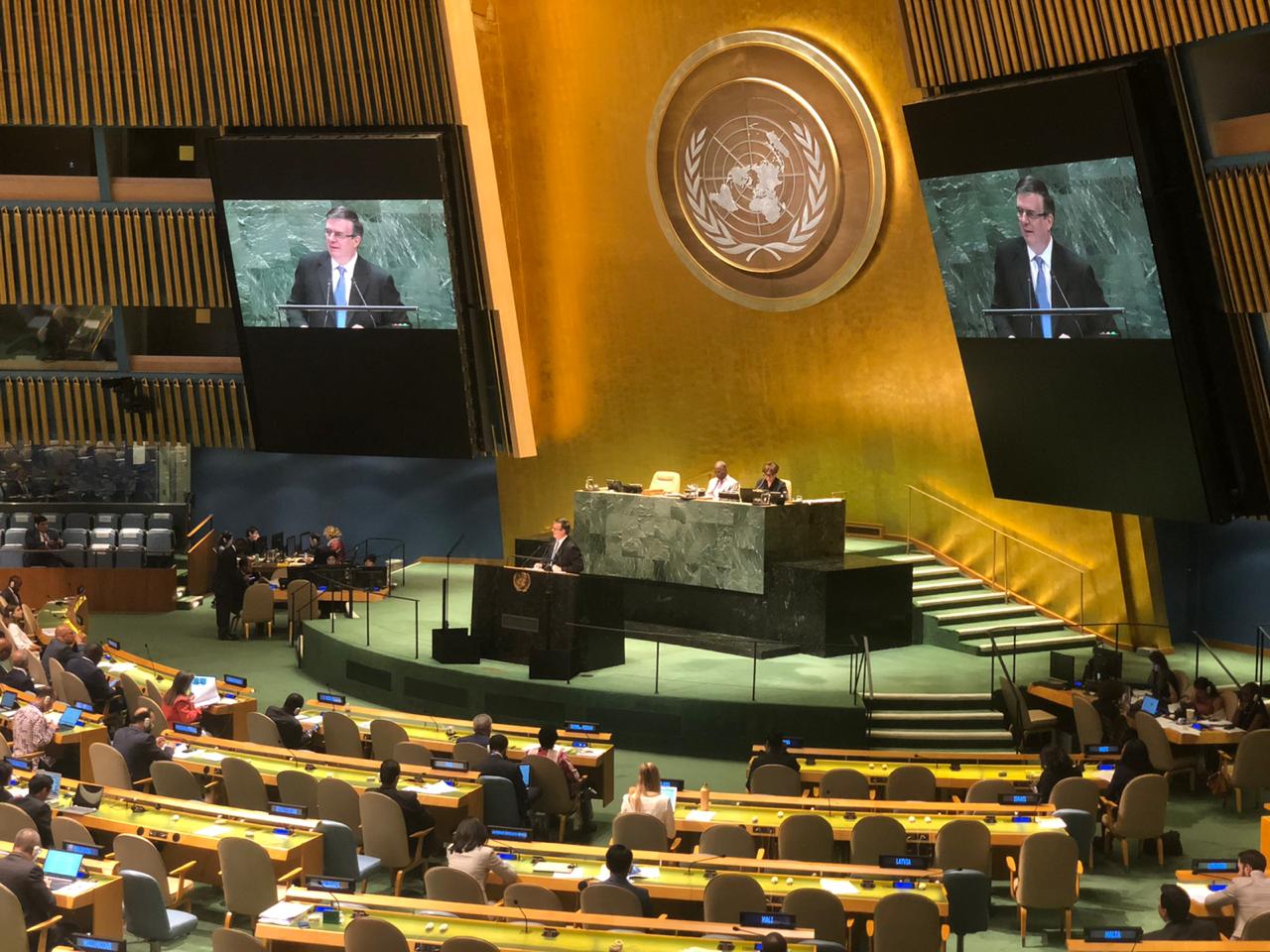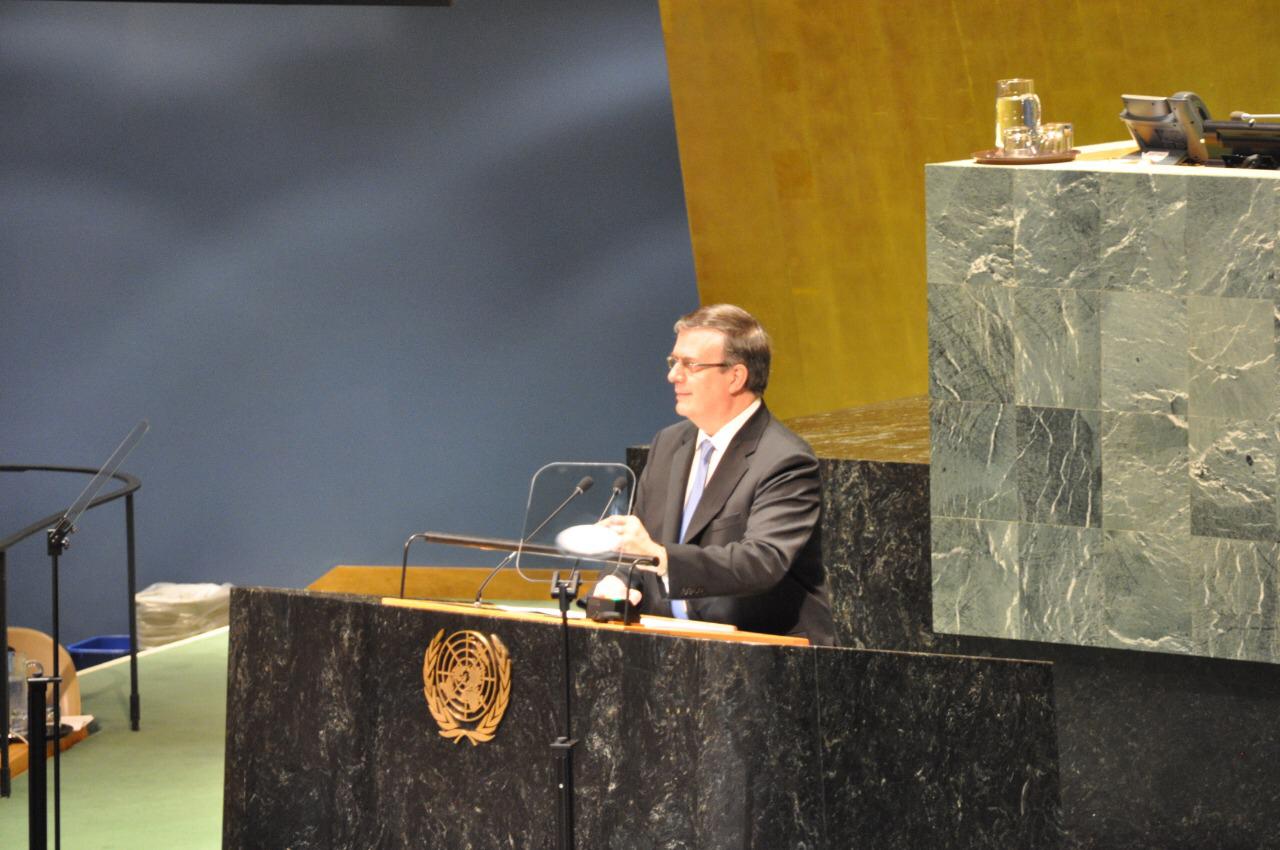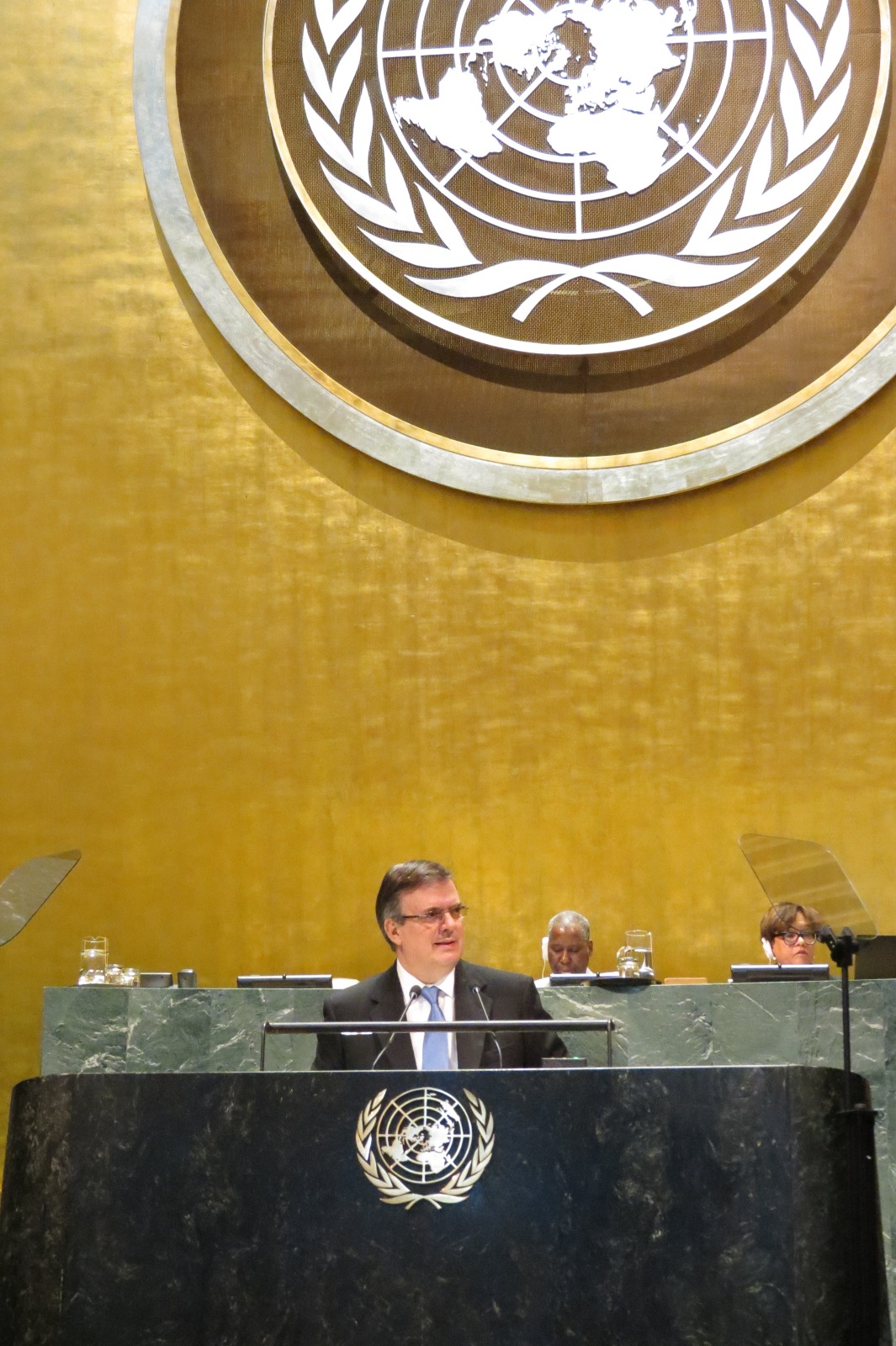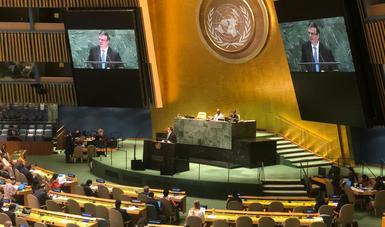Mexico concluded its participation in the high-level segment of the 74th United Nations General Assembly (UNGA) by reaffirming both the mandate received by the current administration for profound transformation and the multilateral vocation that this mandate implies.
In his remarks to the plenary of the UN General Assembly, Foreign Secretary Marcelo Ebrard said that, in terms of foreign policy, the Fourth Transformation led by President Andrés Manuel López Obrador and the administration’s focus on multilateralism has led to stronger ties with the nations of the world.
Multilateralism is the way to face the most pressing global challenges, to be part of humanity’s most noble ideals, which have their home in the UN, and for the international system to be a participant in the profound transformation being carried out in Mexico.
He stressed that the Mexican government is a feminist government. In gender equality, it finds the basis for transformations that lead to social equality. Mexico is committed to defending and expanding human rights. This administration has resolutely defended causes that enable the fullest exercise of freedoms related to sexual orientation. "Persecution divides us; exclusion destroys hope," said the foreign secretary.
The world faces great challenges related to stronger controversies and pacification. This administration has opted for effective multilateralism. In this spirit, Mexico presented its candidacy to the UN Security Council (2021-2022). Our foreign policy is based on the recognized Constitutional principles of non-intervention, the self-determination of peoples and the peaceful settlement of controversies.
At the 74th General Assembly, the Mexican delegation reaffirmed its active political role in the multilateral arena and is returning with excellent results that will benefit our nation.
Mexico signed the "Call to Ocean-Based Climate Action," and Secretary Ebrard announced three related national commitments: 1.- Implementation of the Strategic Action Program of the Gulf of Mexico Large Marine Ecosystem 2.- The Coral Reef Restoration Program and 3.- Expansion and strengthening of the no-fishing protected areas.
In addition, Mexico joined in 15 climate action initiatives that address the following issues: mitigation; indigenous peoples; green jobs; nature-based solutions; adaptation and resilience; protecting cultural heritage; decentralized financing; air quality and health; gender; efficient cooling; and low-carbon mobility.
Mexico co-sponsored the Call to Action of the Coalition on Infrastructure, Cities and Local Action, in which national and sub-national government actors, civil society organizations and the private sector participated. As president of the UN-Habitat Assembly, Undersecretary Martha Delgado served as co-host of the event, sharing Mexico’s position and priorities, which are consistent with the New Urban Agenda, the Paris Agreement and the 2030 Agenda. She also announced that Mexico City would host the Global Observance of World Habitat Day on Monday October 7. Lastly, the undersecretary participated in presenting the flagship report of the Global Commission on Adaptation.
In the area of human rights, Mexico participated in the Christchurch Call to Action, whose purpose is to eradicate hate speech and prevent fatalities caused by hate speech, mainly by regulating content on the internet.
In addition, Mexico officially announced to the international community that it would co-host with France the Generation Equality Forum” in May 2020 in the lead-up to Beijing+25. In a bilateral meeting with the United Nations High Commissioner for Human Rights, Michelle Bachelet, the commitment between the Mexican government and the OHCHR to protect and promote human rights in our region was renewed. The Mexican delegation also participated in the Ministerial Meeting of the Group of Friends of Victims of Terrorism, which highlights the importance of the role played by victims of terrorism in preventing and combating it.
Lastly, Mexico participated in the Alliance for Multilateralism, convened by France and Germany to boost cooperation and to strengthen multilateralism in light of the challenges it currently faces.
On migration, Mexico successfully presented the Comprehensive Development Plan of Central America, which takes a new approach to addressing the issue of migration based on attacking its root causes, on regional cooperation and with an emphasis on human rights. The plan was created jointly by the Mexican Agency for International Development Cooperation (AMEXCID) and ECLAC. Today, it has the support of 18 UN agencies and 35 countries. It is expected to create 60,000 jobs in a year so that migration becomes an option, rather than a necessity.
Mexico returns from the 74th UNGA with significant achievements. It reaffirmed its commitment to effective multilateralism and to the highest ideals of humanity. Mexico has renewed self-confidence and is determined to play a role in addressing the world's most pressing challenges and in the expansion of human rights through multilateralism, for the sake of the nations of the world and for the benefit of our citizens, both in Mexico and abroad.



